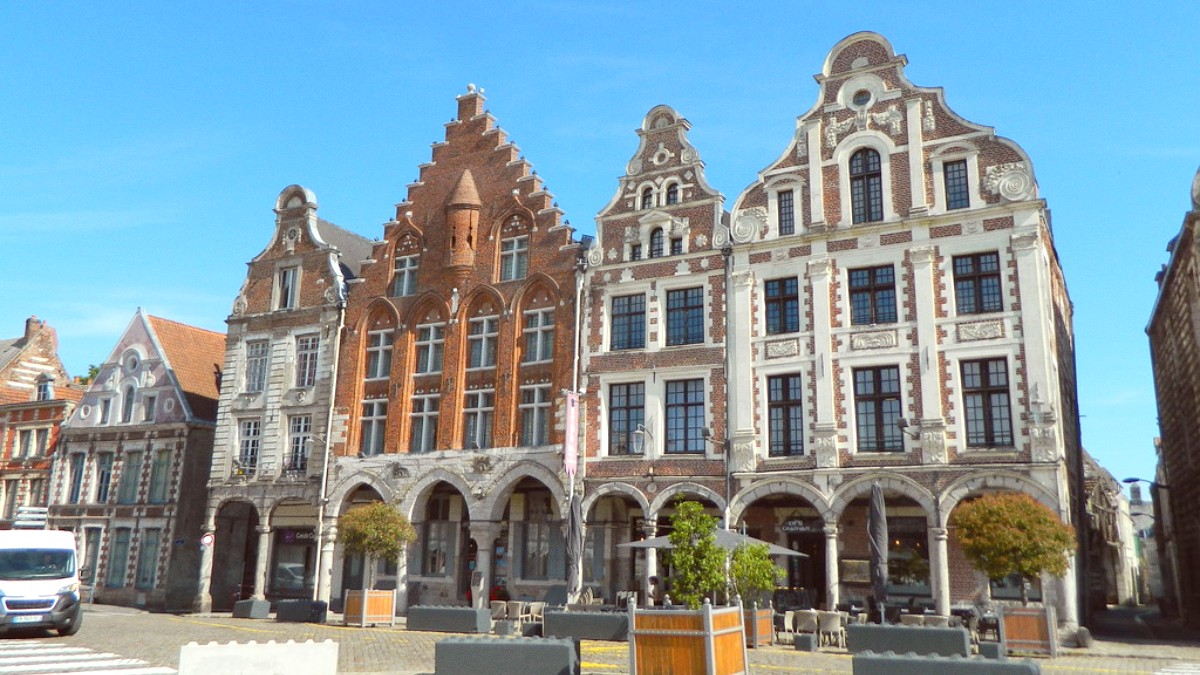
France
Northern French cuisine emphasizes generosity and warmth, often designed for cooler climates. Historically, this region had a working-class background, and its food mirrors this with comforting, often slow-cooked dishes. Flemish culture strongly influences the culinary style, with similarities to Belgian cuisine, including beer in cooking and root vegetables. Local ingredients are central to the dishes, emphasizing freshness.
Potatoes are a staple. Chicory, leeks, and endives are common vegetables. Mussels are a seasonal favorite. Pork and rabbit are traditional meats. Beer often serves as a cooking liquid. Butter and cream add richness. Flavors tend to be savory and rich, often balancing sweet and sour notes using brown sugar, vinegar, or beer.
A light meal. Typically coffee, hot chocolate, or tea, served with bread, pastries (croissants, pain au chocolat), and jam or butter.
Often a substantial meal, especially for workers. Many restaurants feature a "formule" (set menu) with 2-3 courses, for good value.
The most elaborate meal of the day, often a multi-course affair, notably on weekends or for special occasions.
A rich beef stew, braised in dark beer with onions, often with gingerbread and mustard. Find it in traditional brasseries and estaminets.
Comforting, savory, beer-infused
A creamy, comforting stew, typically chicken or fish, with vegetables in a rich, creamy broth. Lighter than carbonnade.
Creamy, wholesome, gentle flavor
A traditional regional terrine made from four white meats (pork, rabbit, chicken, veal) set in flavorful aspic. Served cold with French fries.
Cold, savory, gelatinous
Experience classic French coffee with espresso ("un café"), café au lait, or noisette.
Northern France is a beer-drinking region. Discover local breweries producing craft beers.
Le Passe Temps: A Michelin-starred restaurant with sophisticated modern, creative French cuisine. Booking well in advance is highly recommended.
Many options around Grand'Place and Place des Héros, and surrounding streets. These restaurants typically have a pleasant ambiance and serve traditional French and regional cuisine.
Friteries: For quick, affordable, and satisfying meals. Specialists in French fries, often with various sauces, sausages, or fried items.
While French and regional cuisine strongly feature, international dining options are present. Pizza restaurants are common, as are various Asian (Chinese, Japanese, Vietnamese) restaurants.
Some Mediterranean or Middle Eastern eateries are also available, notably around the city center.
If a specific international dish is desired, a quick online search helps locate suitable establishments.
Arras prioritizes local flavors but has diversity.
Focus on Northern French or Flemish cuisine, inquire at Tourist Office.
Insights into local ingredients, food history, and sampling regional products.
Visit Maroilles cheese producers or local breweries in the surrounding countryside.
Experience a traditional Northern French/Flemish pub-restaurant with hearty regional dishes.
Specific Halal or Kosher restaurants are limited. Some international (Middle Eastern/Turkish) restaurants may offer Halal options. Always confirm directly. Supermarkets may carry small selections of certified products.
Direct confirmation is always the best approach.
Allergen awareness grows in France. State allergies clearly in French: "Je suis allergique à [l'arachide/le gluten/les fruits de mer]". Restaurants can adapt dishes. Cross-contamination exists as a risk. For severe allergies, consider preparing your own meals in self-catering accommodation.
Communication is for safe dining.
Moules-frites (Mussels and Fries): Highly popular in late summer and early autumn when mussels are in season. Many restaurants offer "all-you-can-eat" options.
A classic Carbonnade Flamande dish, a staple of Northern French cuisine.
Some local culinary schools or specialized tour operators in the region may feature cooking classes focusing on Northern French or Flemish cuisine. These offer a hands-on experience in preparing traditional dishes.
Independent guides might offer food tours, often combined with a historical walking tour of the local market and specialty food shops.
The surrounding Artois countryside teems with farms and producers. Visit local cheese producers to learn about Maroilles, or breweries for tours and tastings.
A photo of a Carbonnade Flamande, a classic example of Arras's hearty regional cuisine. Its rich colors and inviting presentation illustrate the comfort and depth of local flavors.
This dish reflects the region's culinary heritage and strong ties to Belgian cuisine, with its generous portions and beer-infused flavors.
From the farm to the table, Arras presents many culinary avenues to explore. Experience the traditional flavors and engaging local food scene.
Savor the authentic taste of Northern France through its stews, cheeses, and unique desserts.
The regional cuisine builds upon fresh, seasonal produce from the surrounding agricultural lands.
Arras's food strongly reflects its Northern French and Flemish heritage, with hearty and comforting dishes.
Enjoy specific dishes like Moules-frites in season or festive treats during the Christmas Market.
Exploring the local markets is a must for any food lover. Here, one can find fresh regional products and immerse themselves in the local culinary scene.